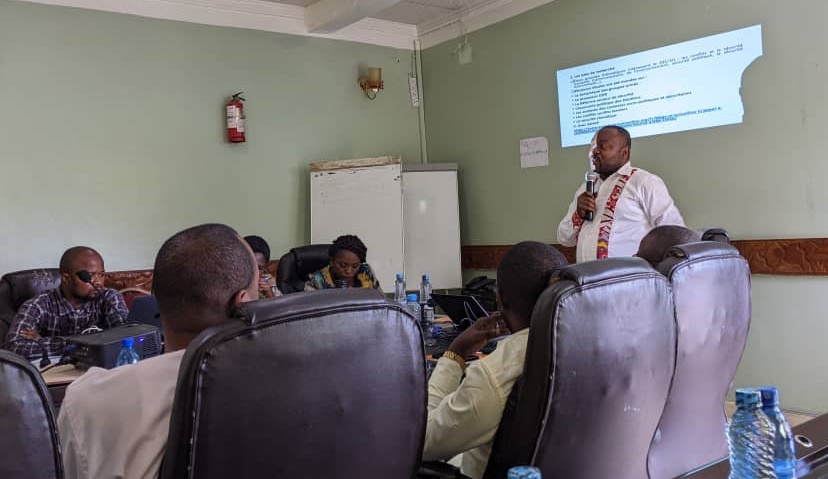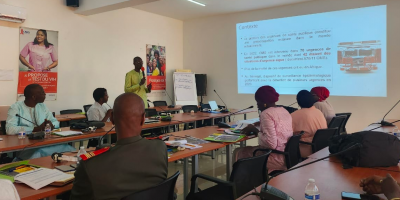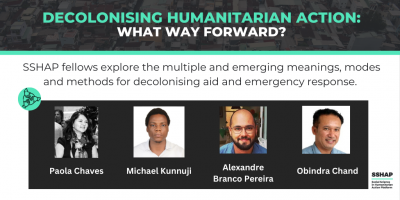How is the current security situation in North Kivu impacting on humanitarian activities in the eastern province of the Democratic Republic of the Congo? And what strategies are humanitarian actors deploying in the province to protect and care for the large numbers of displaced people?
In December 2023, a workshop on the deteriorating security situation in North Kivu was held in Bukavu, South Kivu, and hosted by Groupe d’Etudes sur les Conflits et la Sécurité Humaine (GEC-SH) and the Social Science in Humanitarian Action (SSHAP) Central & East Africa Hub.
Participants from humanitarian organisations, civil society and research analysed the implications for local humanitarian initiatives of increased violence and mass population movements towards Goma and its surrounding area, since October 2023, adding to the people who have been displaced in waves since 1996.
Together workshop participants identified several factors leading to the continuing deterioration of security, including the activities of rival armed groups; the consolidation of the crisis between Rwanda and the DRC; the ‘Operation Shujaa’ joint military operation between the Uganda Peoples’ Defence Forces (UPDF) and the Armed Forces of the Democratic Forces of Congo (FARDC), which has reduced the space for humanitarian operations in North Kivu; and the withdrawal of the East African Community Regional Force (EACRF) that has reignited violence in the areas that the EACRF controlled. Targeted acts of aggression against some humanitarian NGOs have been exacerbated by support and rhetoric from both the governments of the DRC and Rwanda.
Despite this challenging context, where NGOs face not only violence, but mistrust, hostility, fragmented governance, and difficulties with involving local leaders, the workshop participants identified many organisations and networks continuing to work in North Kivu and community-led initiatives working to deliver humanitarian aid, including churches and youth associations. For example, established in 2019, Goma Actif, a young people’s initiative that primarily provides voluntary care and support to malnourished children in IDP camps by mobilising local sources of funding. In June 2023, Congolese Hutu community leaders set up an organisation called CEVAR (Collectif des Victimes de l’Agression Rwandaise en RDC), which campaigns for peace promotion, reparation for victims, development and inter-community integration. Participants from these and other NGOs shared their experiences during the workshop.
Humanitarian workers are often deployed in several areas where governance is fragmented and there is a huge problem in accessing beneficiaries, which requires a flexibility to circumstances that is not envisaged in the deployment plan. Having to manage the interests and expectation of different groups of aid beneficiaries, such as internally displaced people, returnees and vulnerable indigenous people, can be challenging. Despite many vulnerable people benefiting from aid, participants had concerns about how humanitarianism has become a business and an opportunity to wield influence, at least for some.
The workshop participants agreed the need for research to highlight and learn from organisations such as CEVAR and Goma Actif as an entry point for rethinking humanitarian action in Eastern DRC and to help to answer the key question of how we can build a bridge between local initiatives and international NGOs to strengthen humanitarian strategies.
Participants also recognised the value of building on and formalising local platforms, such as GEC-SH, CIRESKI, WEC-Congo and Goma Actif, for convening and learning between local and international actors.





